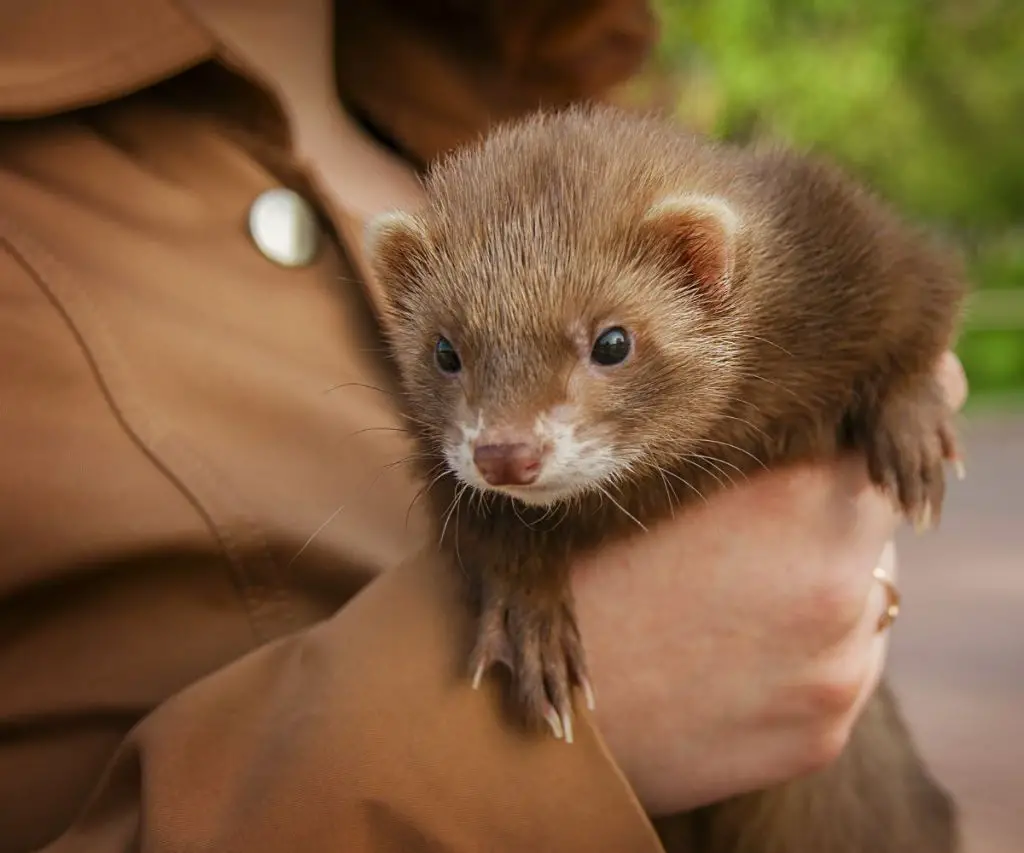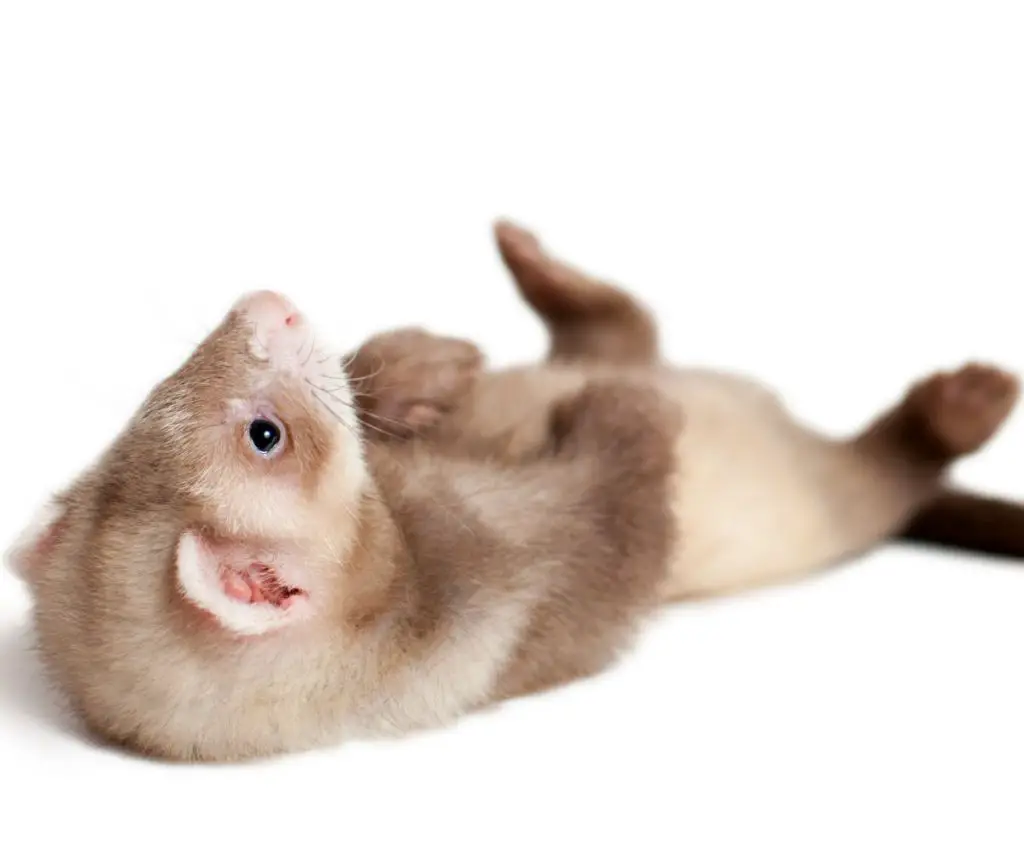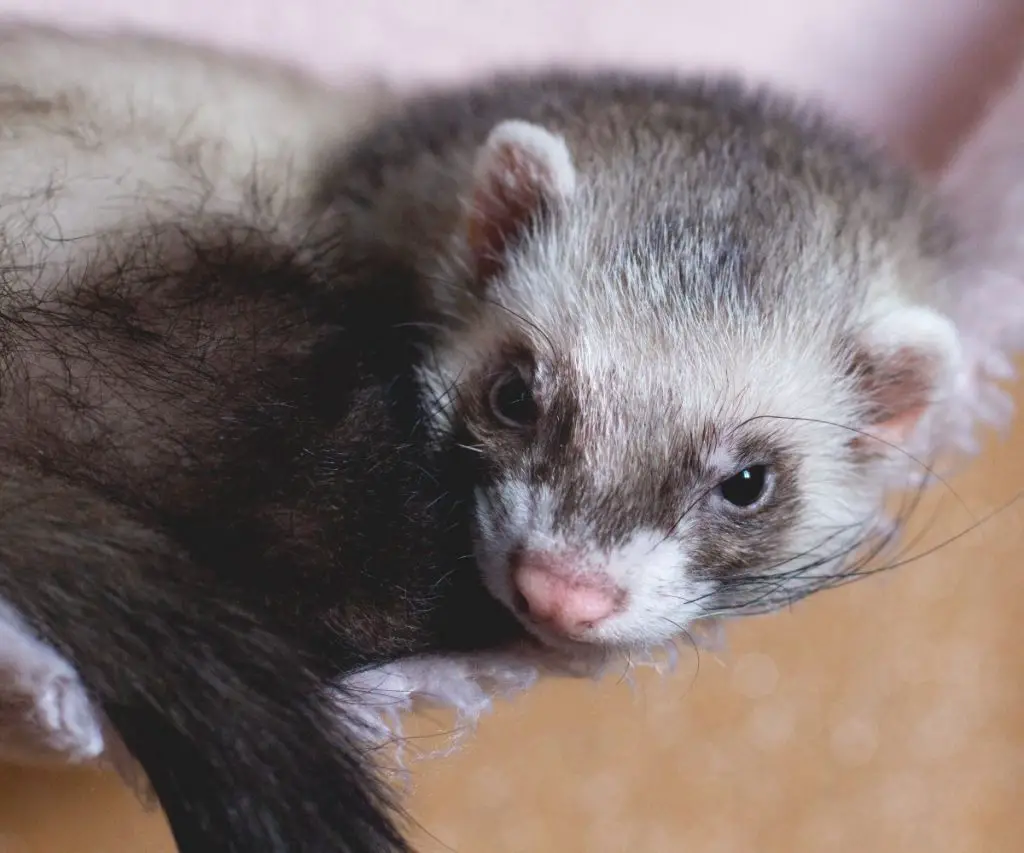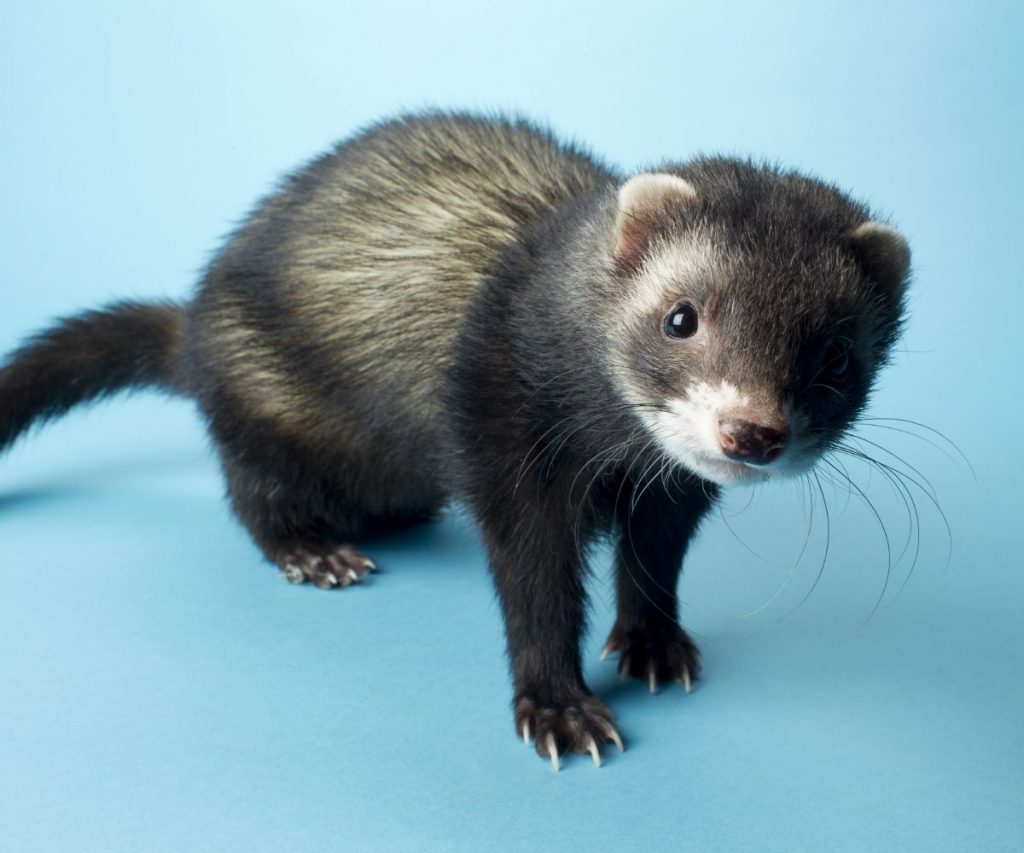Ferrets convey their emotions in a variety of intriguing ways. They’re adept at expressing themselves through body language and a wide range of vocal sounds.
Many people wonder: “do ferrets purr?”
While ferrets don’t purr, they do hiss, screech, and produce sounds similar to chirps. Learning the different sounds and bodily signals ferrets send is key to caring for these unique creatures.
Ferret Noises and Emotions
It’s normal for ferrets to make distinct noises when they feel a particular way. These are a few of the most common emotions and their corresponding sounds.

What Noise Does a Ferret Make When Happy?
One of the most commonly asked questions among ferret owners is: how do I know if my ferret is happy? Because ferrets produce so many vocalizations, knowing which ones convey happiness is crucial.
Typically, happy ferrets will make a “dooking” sound that resembles a chirp. Many people also think the dooking sounds are similar to chickens clucking.
Ferrets who are excited or want to play will make the dooking sound as well. It’s common to hear this sound when two ferrets are wrestling or playing with each other, for example.
When it comes to body signals, happy or excited ferrets will also have their heads up and look eager for engagement. They also tend to hop around or dance excitedly when happy. Additionally, some ferrets even wag their tails like a dog.
What Noise Do Ferrets Make When Playful?
Dooking isn’t the only sound ferrets make when they’re feeling playful. Another common sound ferrets make, especially during interaction with other animals or people, is squeaking. Squeaking can sound similar to dooking but noticeably different.
Squeaking here and there during play is a positive sound. However, ferret owners should pay attention to the frequency of the squeaks. If they increase and become more intense, it may be time to separate the ferret from its playmates.

What Noise Does a Ferret Make When Angry?
It’s usually obvious when a ferret is angry or otherwise unhappy. Ferrets will make a hissing sound when they’re upset or scared. Unlike hissing from cats, however, a ferret’s hiss will be choppy and low.
Context is key when it comes to negative emotions. If ferrets are fearful, they will cower and throw backward glances. It’s also not uncommon for them to run and hide if they sense danger.
Though hissing typically indicates anger or fear, ferrets can also hiss when they’re playfighting with other ferrets. That’s why it’s important to understand body cues. If a ferret is looking around and agitated while hissing, there’s a good chance they need reassurance.
Another noise ferrets make when upset or angry is bark. Of course, ferret barking sounds nothing like a dog barking—it is more of a high-pitched chirp. This chirping is not the same as the happy dooking sound and is more of shrill noise.
What Noise Does a Ferret Make When in Pain?
Ferrets make an unpleasant screeching sound when they’re in pain or fight-or-flight mode. Of all the ferret noises, screeching is the most concerning. While ferrets are not aggressive animals, screeching may happen along with some aggression.
A screeching ferret needs immediate removal from a situation. This noise warrants investigation, and owners should quickly find out what the problem is. If a ferret screeches but isn’t hurt, likely external stimuli causing them distress.
Sometimes ferrets may not be in real danger but perceive a situation as frightening. After pinpointing the cause of the screeching, ferret owners should place the ferret elsewhere and give them some time to calm down.

What to Do if a Ferret Makes Distressed Noises
If a ferret is making distressed noises such as hissing or barking, the first course of action should be to pinpoint the cause. Once again, context is key. If the ferret is playing with another and uninjured, the barking or hissing is likely part of the play.
However, if the barking or hissing happens when the ferret is alone or in response to something, in particular, it’s best to place the ferret elsewhere. Giving the ferret time to process its emotions will go a long way.
It’s also essential to understand a ferret’s unique personality. Like people, animals have their ways of doing things. Different ferrets may act differently when faced with the same situation.
Generally, signs of aggression or any drastic behavior change should be a red flag. Screeching should always be taken as a cause for concern, as this is one noise that ferrets only make when something is seriously wrong.
Keep a Journal
Keeping a journal of a pet ferret’s behavior is helpful. When the owner records typical behavior for their pet, they’re more likely to notice sudden changes.
Having a record of ferrets’ behavior is also beneficial if something goes wrong. A vet can better assess a pet ferret if the owner has been diligent in keeping records. It also guarantees a quicker treatment response if a serious ailment occurs.
When to Seek Medical Help
Changes in sleeping patterns and eating habits are good indicators that a ferret isn’t feeling well. Hiding constantly, laying low to the ground, unexplained aggression (such as biting), and squinting eyes are also causes for concern.
Ferret owners should contact a vet if they see any of these signs, as they may be related to illness.

Ensuring Your Ferret Is Happy
Ferrets will be happy if their basic needs are met. These include:
- Fresh water and plenty of healthy food, as well as occasional treats
- A clean cage and environment
- Temperatures that are cool but not cold
- Annual vet visits
- Toys that provide stimulation
- Space to run around and explore
- Interaction with owners
It’s natural for ferret owners to wonder if their pet needs an animal companion. This may vary from ferret to ferret. Some ferrets love to interact with other animals, even of a different species. On the other hand, many ferrets prefer alone time.
Final Thoughts
Ferrets are stoic and charming animals. With the proper care, it’s easy to keep them happy. Learning to distinguish the different noises they make will help ensure that ferret owners guarantee their pets stay happy.


